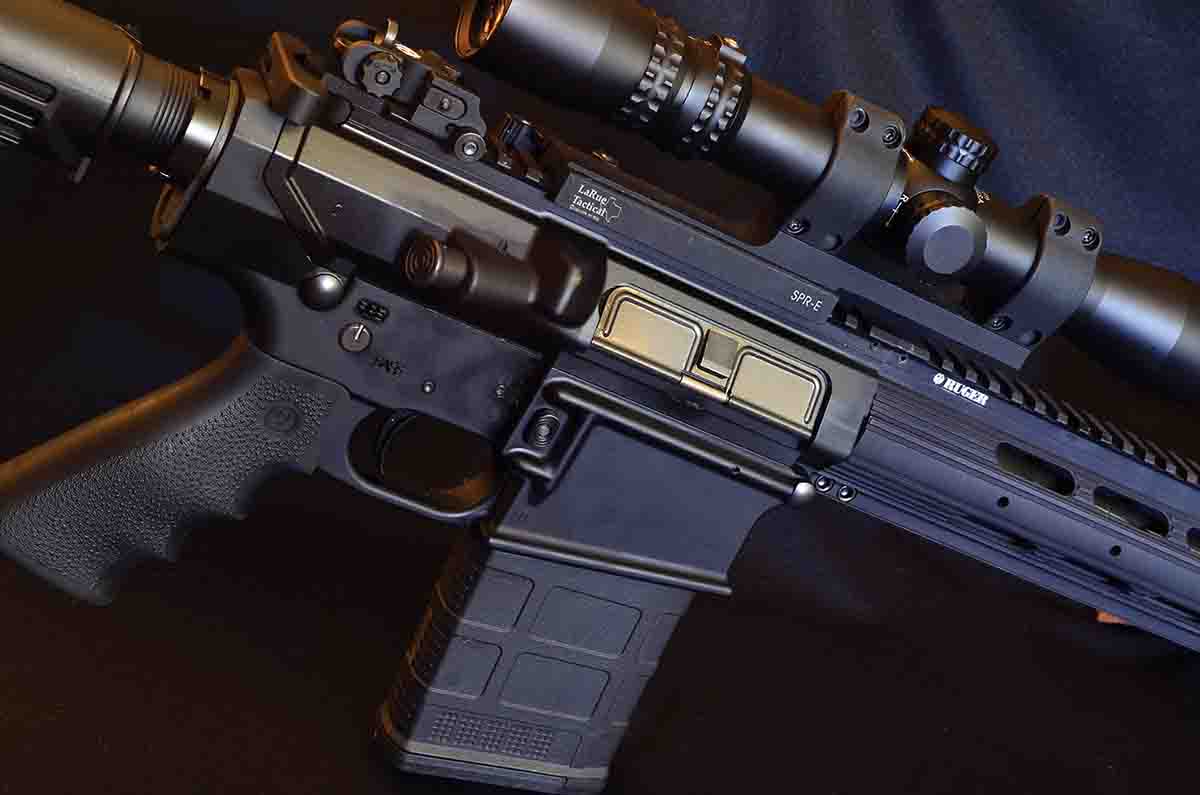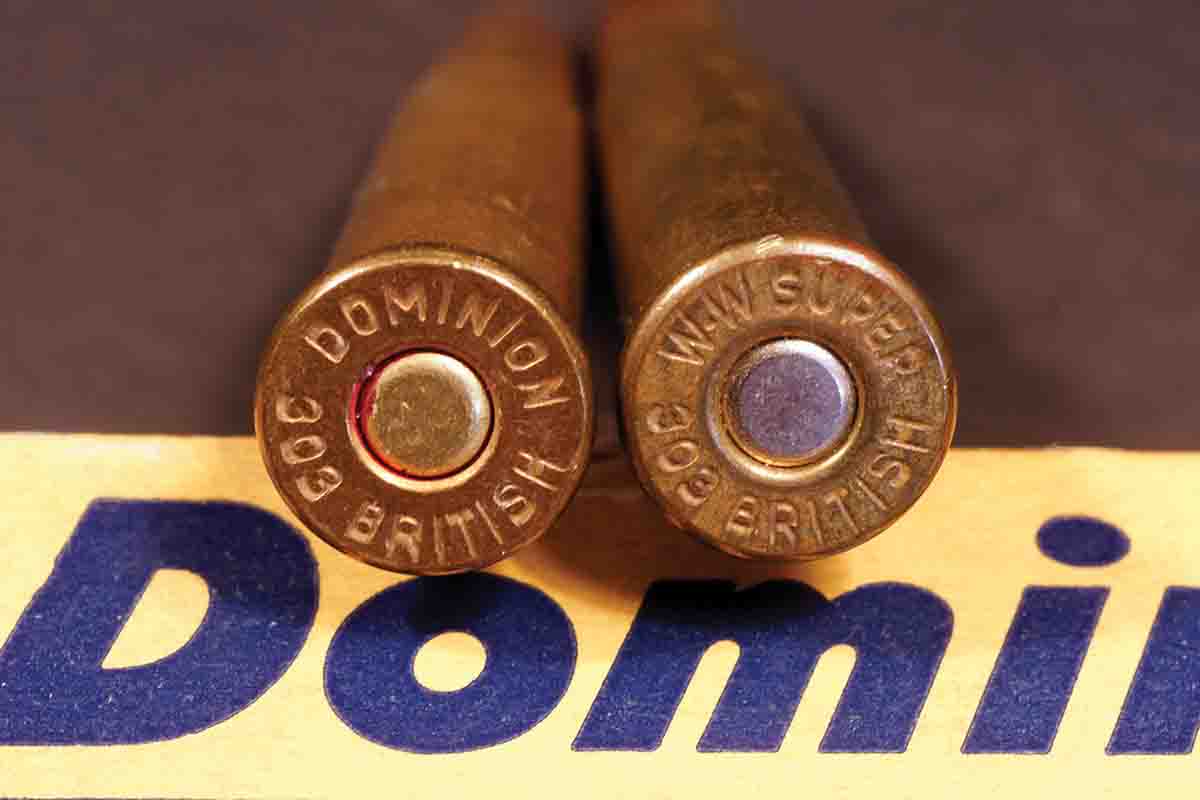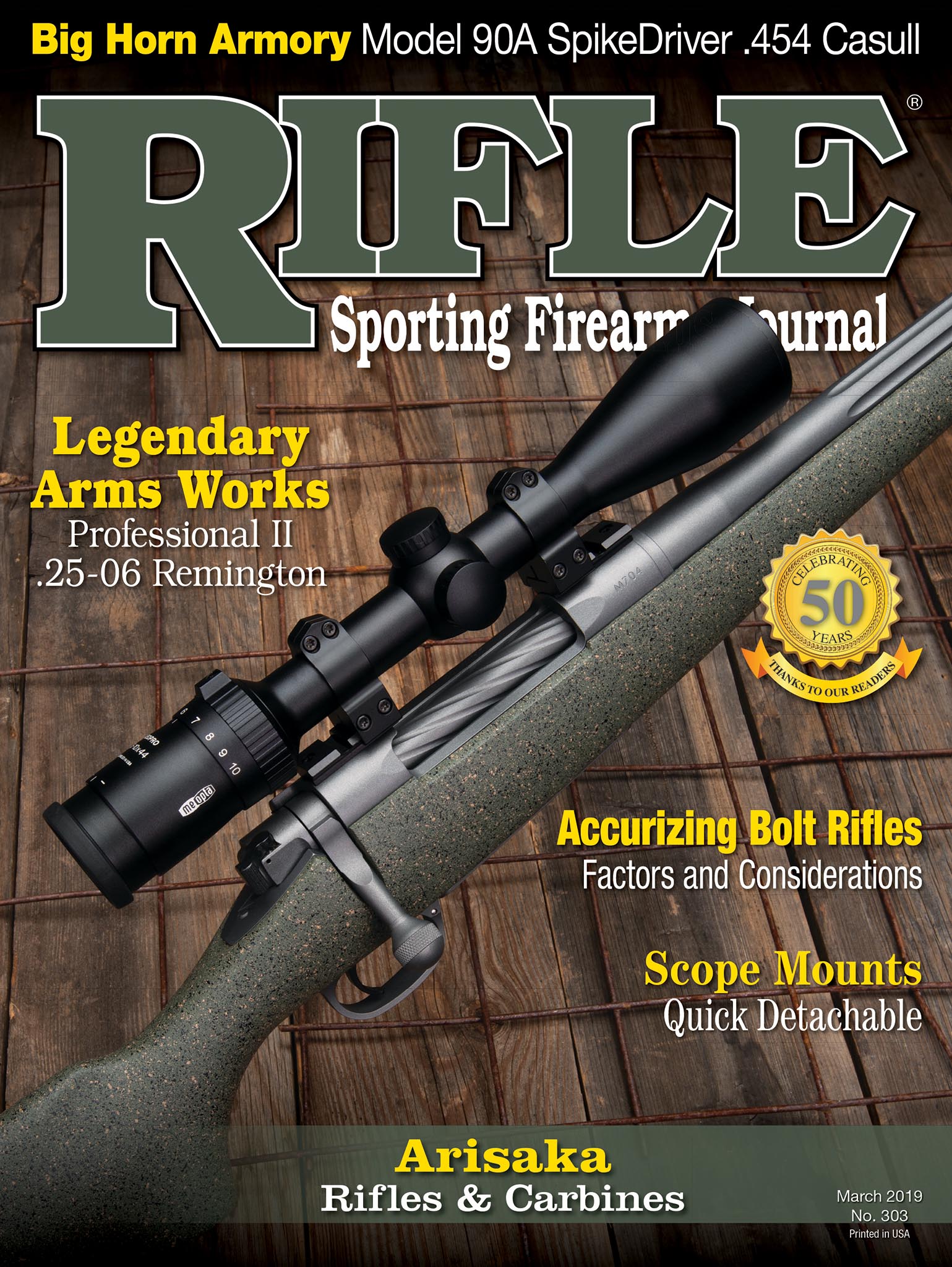Walnut Hill
Private Rifles
column By: Terry Wieland | March, 19
The first words of this column were set down at the 11th hour of the 11th day of the 11th month in the year 2018 – 100 years to the day, and even the hour, of the end of the Great War.
The Great War had other names: “The war to end all wars” by some; “the war to make the world safe for democracy” by others. Those never stuck because they turned out to be far from the truth. The Second World War (1939-1945) eclipsed the first, and not only did democracies fall like dominoes in the process, they have not fared all that well since.

The Kaiser’s War marked the rifled barrel’s absolute dominance of the battlefield – in infantry rifles, machine guns, artillery, and finally, the tank. Still, it was the individual soldier, carrying a rifle that he fired from the shoulder, who proved to be the critical element. And the very best soldiers from all nations were those who had learned to use rifles in private life, before they donned a uniform.
Among the Allies, it was acknowledged that the finest fighting unit on the western front by 1918 was the Canadian Corps. The Australians and New Zealanders would dispute that, but all had their moments. What they had in common was the fact that they were mostly outdoorsmen – farmers, trappers and cowboys. They had grown up eating well and getting lots of exercise, and they handled rifles as naturally as others used a knife and fork.
On the German and Austrian side, it was jäger (hunter) and mountain troops that established themselves as elite units. The French had their chasseurs (hunters), the Italians the Alpini (mountain troops) and the Russians the Cossacks (mounted farmer-soldiers). Among the British Indian units, the Gurkhas of Nepal were mountaineers while the guides were drawn from the rifle-loving tribesmen of the Khyber Pass.
What is surprising is how soon after 1918 this lesson was forgotten on both sides of the Atlantic. In Great Britain, increasingly restrictive gun laws between 1918 and 1938 removed many rifles and handguns from private ownership. Then, in 1940, with the fear of a cross-channel invasion by the German Army, Britain appealed to the U.S. and Canada to voluntarily send them any and all sporting rifles with which to arm the populace. One would think that experience would have had a lasting effect, but no. Today it is harder than ever to own a rifle in the U.K., and impossible to own a handgun.
One effect of the Great War, aside from engendering the absurd idea that it would end all wars, was to promote pacifism as a widespread and respectable belief. I have no personal problem with pacifism as long as the pacifist in question does not try to disarm me or my friends. Otherwise, fine; we always need stretcher bearers.
The same belief took hold after 1945 with a touching (if naive) faith in the United Nations and the European Union to protect us all. The countries of Europe would never again face off across the Rhine, it was thought, because they will all be part of one big economic country, in fact if not in name. And, with the de-Nazification of Germany and Austria, it was thought, destructive nationalism would be dead.
But there’s a contradiction here. On the one hand, commentators deplored the fact that the Jews of Europe had no firearms with which to resist when the gestapo came to call; on the other, they were calling for restrictive gun laws in the U.S. to combat rising crime rates. When the Second Amendment was pointed out to them, their response was that such a measure might have been a good idea in 1776 but was “no longer needed” because we now had a national army to protect the country, and organized police to protect the people.

When I joined the Canadian Army Reserve in 1966, I got a first-hand look at the qualities and ability of the other recruits. I was a country boy who had spent most of the previous four years wandering the fields with a rifle in my hands. A few of the others had a similar background, but most were from the city. At that age (our teens), the great attraction of the particular unit I was in – mechanical engineers – was learning to drive big trucks, including an M62 wrecker, and working on engines. For those guys, learning how to shoot an FN C1 was the price they paid for getting to drive; for me, screwing around with vehicles was the price I paid for the joyful hours I spent with the FN C1, STEN (we had not yet been issued Sterlings), BREN and FN C2 section automatic rifle.
On the rifle range, the difference between the country boys and the city slickers became painfully obvious. It wasn’t that we out-shot them so badly (although we did that regularly) but that we could dismantle, clean and reassemble those guns effortlessly, and enjoyed doing it. We never missed a chance to carry a gun and had impromptu contests to see who could strip and reassemble one the fastest. We had an affinity for guns of all kinds – and by extension, for carrying and using them in the field – that the others could never match. (Honesty compels me to admit that I never did learn to handle the M62 effortlessly, or to haul a deuce-and-a-half out of a swamp in a howling gale. My forte was riding shotgun.)
America in the early part of the twentieth century took great pride in being a “nation of riflemen.” Some prominent shooters, including Jack O’Connor and Col. Townsend Whelen, have questioned exactly how accurate that ever was, and if so, exactly when it ceased to be the case. It’s certainly not true now, although there are probably more natural shooters and riflemen in the U.S. than in any other country in the world. Percentage-wise, however, we are a declining minority.
I personally don’t know anyone who seriously expects the world to end, for survivalists to come to the fore, for preppers to take center stage in defending liberty or for a coalition of militias to band together and march on Washington. There is unlikely to be a repeat of 1940 or even of 1914. However, if there is a value to having a “well- regulated militia” it’s not so much in what it might actually do as in what the politicians fear it might do.
During the Great War, much of the Royal Navy’s home fleet spent the better part of four years at Scapa Flow, the big naval base in the Orkneys – inhospitable at best, miserable at worst. After the German surrender, when one German officer saw Scapa in December he commented, “You spent four years here? You deserved to win.”
Those who say the Royal Navy did not contribute much to the victory, given that there was only one really major engagement – Jutland in 1916 – miss the point. Part of the strategy was the “fleet in being.” Just by existing at Scapa, with the threat it posed, the fleet severely limited Germany’s options. After Jutland, the German High Seas Fleet never ventured out again.
The same principle applies to riflemen in America today. Washington certainly learned the folly of national disarmament at the Pentagon level after 1945, and it’s also true of the lone civilian with an AR and a 1911. If the world ever again needs to be “made safe for democracy,” as appears increasingly likely, it will be Americans who do it because almost everyone else is virtually disarmed.


